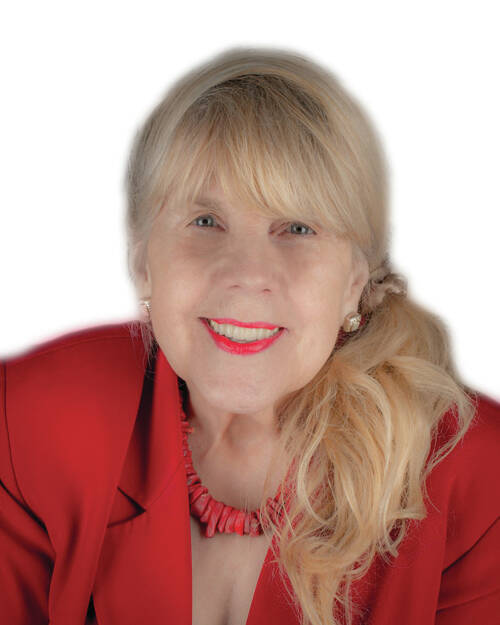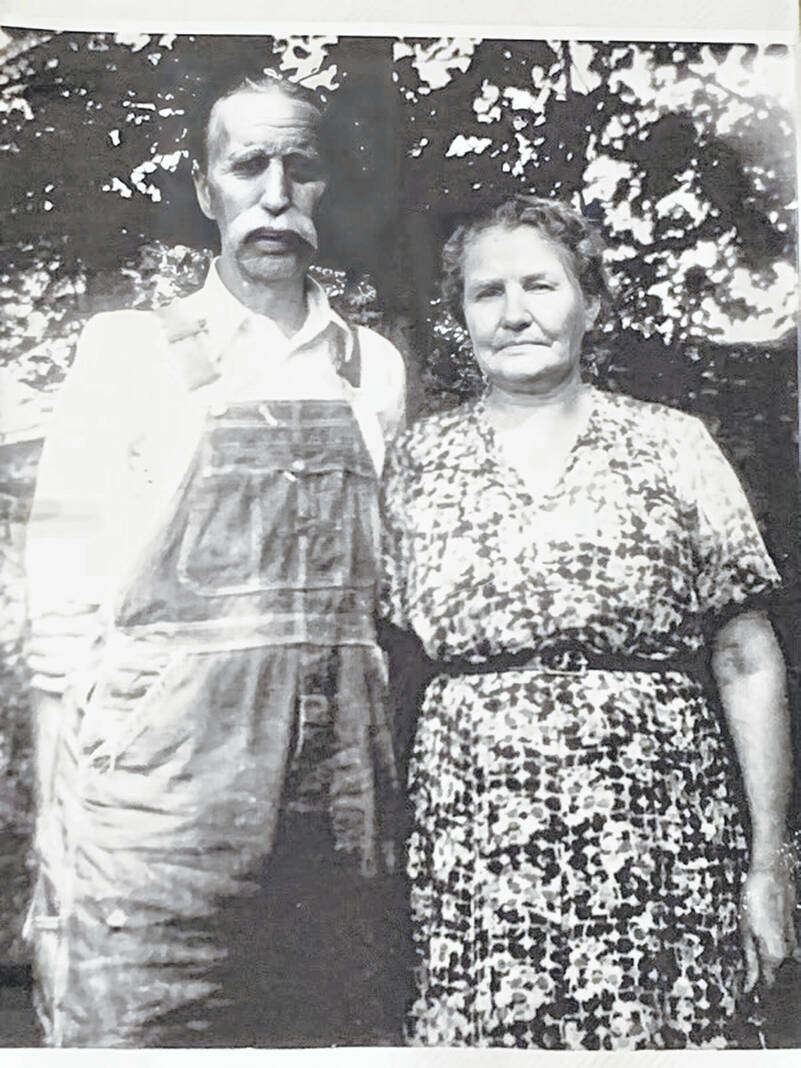

Mr. and Mrs. Jim Gilliam
By Vivian Blevins
Contributing Columnist
We study literature as kids and adolescents, and some poems, plays, and stories become a part of who we are. I had a conversation recently with my nephew Hunter, 16, and somehow it led to my asking him about Richard Connell’s “The Most Dangerous Game.” He had read it, remembered it, and liked it as did I. Over 20 years ago, I traveled quite a lot with Dr. Joanne Ordinachev, St. Louis Community College board president, and she was surprised that I could quote poems I memorized as a student at Woodward High School in Toledo. Recently, I began to think about Thornton Wilder’s play “Our Town” in which Emily, who died as a young woman, was allowed to select one day from her past and relive it. I decided to ask a few friends to tell me about a day they would choose to live over.
As Halloween, Thanksgiving, and Christmas are coming up in quick succession, I began to consider my important memories from those days, but I finally decided on a summer day I would choose to live over. It was a Saturday, and I was about 10-years-old, and my brother Bill was eight. No school. No responsibilities (We never had chores as children because our mother had spent her childhood in the coal mining town of Benham, Ky., owned by International Harvester, doing an endless number of chores, and she vowed that when she had children, her children would be free to be children). We lived in a house my grandfather had built on the Cumberland River- the Poor Fork Branch which becomes the Cumberland River at Baxter, Ky., when it merges with Martin’s Fork and Clover Fork. On either side of us were mountains which we called hills; know that what you call these elevations is all according to your perspective. Bill and I played on what we called “Gilliam’s Hill” because the property belonged to Jim Gilliam whom we called “Old Man Gilliam” (James Reynolds Gilliam, 1877-1963). We called him this not out of disrespect but to differentiate him from other Gilliams, a common surname in the area. As an aside, Mr. Gilliam raised a big garden, was a carpenter with a fascinating tool shed (He called it the car house because he had bought a car once for his daughter Florence to drive to college, but she wouldn’t drive, so he sold the car), had a shotgun over his fireplace, and often sat in a rocking chair in his living room where he chewed apple-flavored Beechnut twist tobacco and had a brass spittoon. I never saw Mrs. Gilliam ( Ella Blair Gilliam , 1885-1965) when she wasn’t wearing a starched, feed sack apron with a pocket for her handkerchief (She needed her handkerchief to wipe her mouth as she dipped Bruton’s Scotch Snuff), busy doing women’s work in the kitchen. I wondered at times if she ever took that apron off before going to bed.
Back to that special day. Bill and I climbed Gilliam’s Hill, picked a few blackberries along the fence line, ate a few, and put some in our dad’s dinner bucket. That day the temperature was perfect, not too hot; the wild pink roses were in bloom; a breeze was gently blowing. There was a small coal mine on that hill, but we knew the dangers of abandoned mines and we never went near it (The river was another matter as Bill seemed to fall in regularly. Not really, but he had one narrow escape from drowning as the river was deep behind our house at that time). We left Gilliam’s Hill, showed Mother that our bucket had a single layer of blackberries, asked for a few dimes and were off to see a cowboy movie at the Corlee Theatre. We always pretended to be on horseback, slapping our thighs and saying “Giddy up” as we scurried down the dirt road to the movie which was the equivalent of about five blocks away. There we’d see a news reel, a cartoon, and the main feature with Jimmy Wakely, Hopalong Cassidy, or Johnny Mack Brown saving a town from outlaws or indigenous Americans and then riding off into the sunset. Following these adventures at the Corlee, we headed home, knowing Mother would have supper ready and that we would be attending Sunday school the next morning at the Central Baptist Church. Yes, my childhood was good: safe, loving, with endless adventures that my brother and I designed.
Then I became an adult and expanded my sense of the world dramatically, taking my spirit of adventure and my desire to work with college students from Ohio to Kentucky to Texas to California to Missouri and back to Ohio. One of my former students whom I taught at Urbana College, Vivian Hazel of Oshkosh, Wisc., shares her special day: “It was that Sunday morning when I answered the phone and a voice asked, ‘Is this Vivian?’ I said, ‘Yes.’ Her next words carried me 38 years prior to see my four-year-old self surrounded by five siblings just before we were surrendered to Ohio Welfare. Her next words were, ‘This is your sister, Bobby Jean.’”
Wayne Kerr of Schaffhausen, Switzerland, writes, “I suppose the one out of so many I have had was a day trip around Elba with my wife before the kids were born. It was simple, easy-going driving with no plans- just experiencing a place with no agenda- visiting the house of Napoleon Bonaparte and then back to the mainland with the ferry.”
And there is Don Stackhouse who lives on a farm between Bradford and Covington and who indicates, “I have a fantastic day I could write about from when I was five-years-old, the first time my dad let me steer an airplane. It was a DC-3, a gigantic beast that belched smoke and spit blue flames from the exhausts with flashing strobes that at night lit up everything around them. I got to see from a new perspective: I was treated to a view that looked like the Arctic Ocean, speckled as far as I could see with popcorn-shaped blinding white icebergs that were so bright they almost hurt my eyes. And I saw the earth visible below: rivers, roads, fields, homes, cities, all with a subtle bluish tint reflecting from the sky above.”
Finally, there are the regrets which should give all of us a wake-up call to ascertain that we make memories while those whom we love are still with us. Dolores Dennehy of San Antonio, Texas, says, “I would like to go back to my grandparents’ farm and spend time with Grandma shelling black-eyed peas and talking to her and Grandpa about their growing-up years and listening more. Additionally, Robbie Burns of London, Ohio, indicates, “I would like to go back to spend more time with my grandfather back when I was a teenager. He was a U.S. Marine in World War II, and I would have asked a lot more questions and spoken less.”

